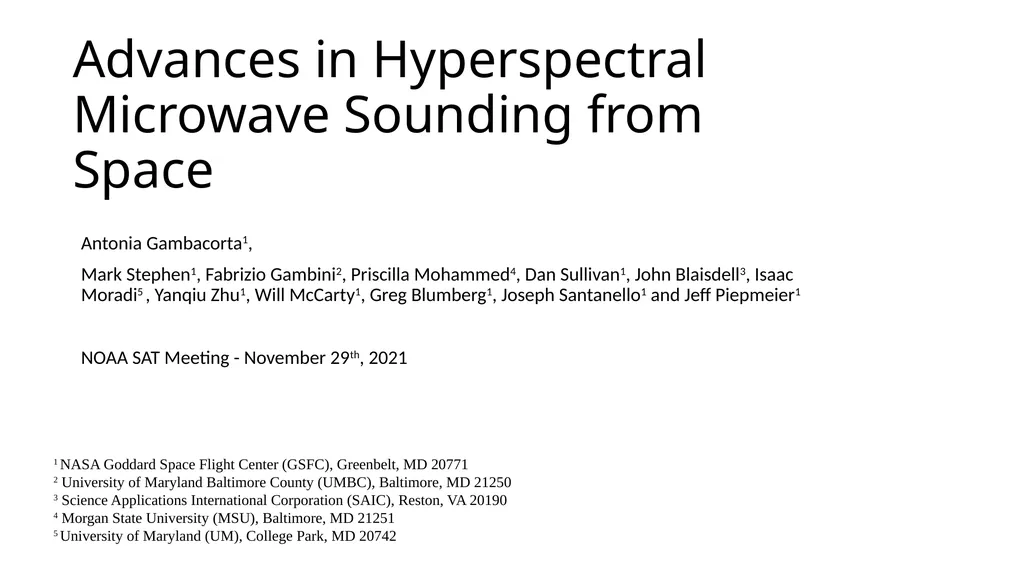
Author : luanne-stotts | Published Date : 2025-05-23
Description: Advances in Hyperspectral Microwave Sounding from Space Antonia Gambacorta1, Mark Stephen1, Fabrizio Gambini2, Priscilla Mohammed4, Dan Sullivan1, John Blaisdell3, Isaac Moradi5 , Yanqiu Zhu1, Will McCarty1, Greg Blumberg1, JosephDownload Presentation The PPT/PDF document "" is the property of its rightful owner. Permission is granted to download and print the materials on this website for personal, non-commercial use only, and to display it on your personal computer provided you do not modify the materials and that you retain all copyright notices contained in the materials. By downloading content from our website, you accept the terms of this agreement.
Here is the link to download the presentation.
"Advances in Hyperspectral Microwave Sounding from"The content belongs to its owner. You may download and print it for personal use, without modification, and keep all copyright notices. By downloading, you agree to these terms.













